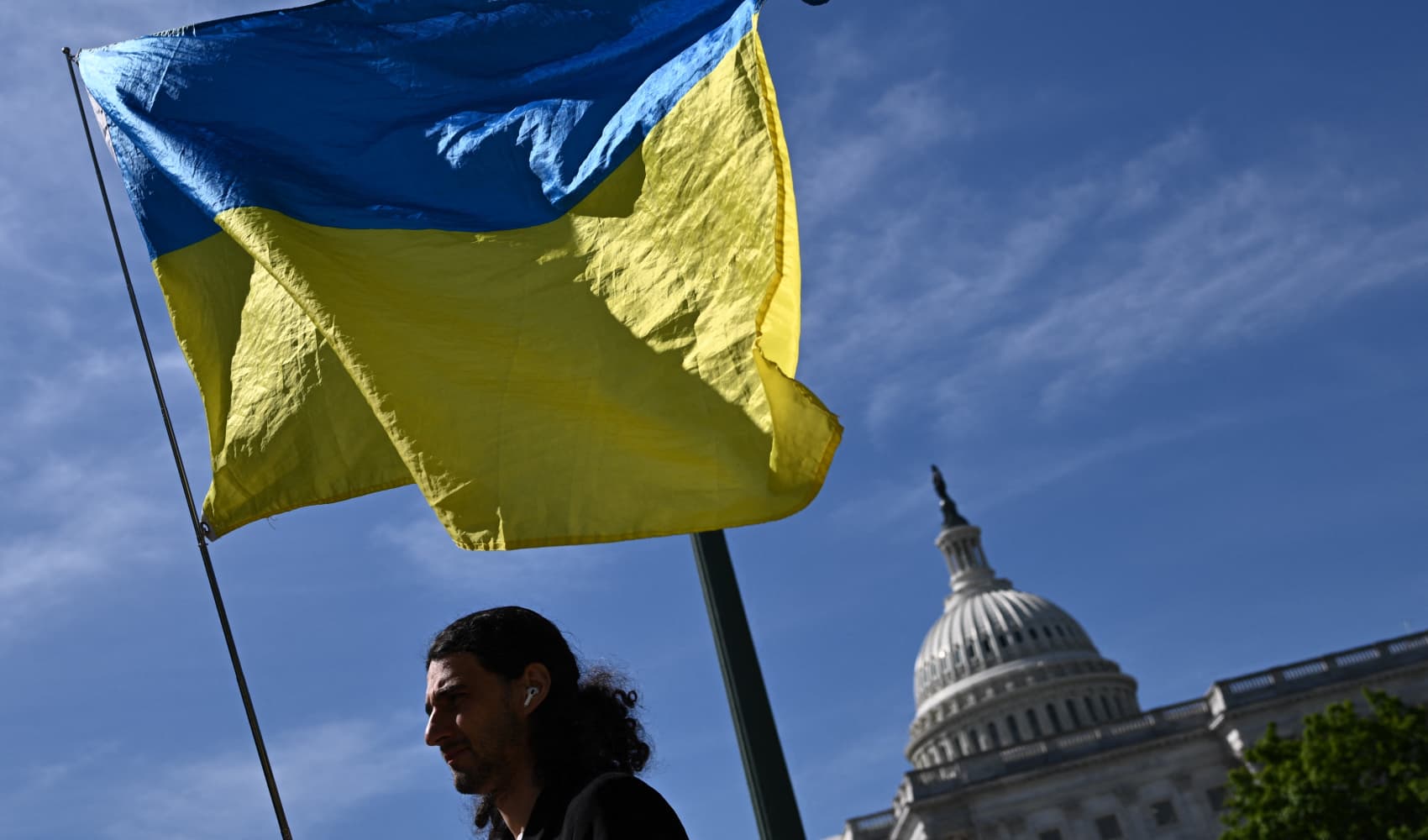
- When Russia invaded and annexed Crimea in 2014 little was done to stop it, or to actively help Ukraine to get its territory back.
- But now, Ukraine appears to be finally in a position to fight back in the peninsula with a spate of recent incidents in which Russian military positions and infrastructure have been damaged.
- The latest incident on Tuesday saw a fire and explosions at a Russian ammo depot which Moscow said was a result of "sabotage."
- Ukraine has not openly said it is attacking Russian positions in Crimea, but the incidents are seen as part of its counteroffensive in southern Ukraine.
When Russia invaded and annexed Crimea in 2014 little was done to stop it or actively help Ukraine get its territory back, a salient point given Russia's full-scale invasion of its neighbor that begun earlier this year.
But now, Ukraine appears to be finally in a position to fight back on the peninsula with a spate of recent incidents in which Russian military positions and infrastructure in Crimea have been damaged.
These, it's believed, are likely to be a part of Ukraine's tentative counteroffensive in the south as it seeks to dislodge the occupying forces and eventually reclaim its territory, once and for all.
We're making it easier for you to find stories that matter with our new newsletter — The 4Front. Sign up here and get news that is important for you to your inbox.
The latest incidents in Crimea took place on Tuesday when a fire caused multiple explosions in a Russian ammunition depot near Dzhankoi in the north of the peninsula. A nearby railway and electricity sub-station were also damaged as well as residential buildings, Russia's defense ministry said.
The incident led to several thousand civilians in the vicinity being evacuated. although there were no serious casualties.
Money Report
Separately, Russian media also reported that smoke was rising from near Gvardeyskoye Airbase in the center of the Crimea, leading to huge queues forming at the nearby Simferopol Railway Station as residents tried to flee the region.
Russia's Defense Ministry later said the incidents were "a result of sabotage" but gave few other details as to the cause. Ukraine, meanwhile, has not openly admitted being responsible for the blasts but several officials have hinted that Kyiv could have had a hand in the incidents.
Andriy Yermak, a top official in Ukraine and advisor to President Volodymyr Zelenskyy, said wryly on Twitter Tuesday that the latest incident was a part of the "demilitarization" of Russian-occupied Ukrainian territory and that "Crimea is Ukraine." Fellow Ukrainian official and advisor, Mykhailo Podolyak, echoed the sentiment, saying the incidents were "demilitarization in action."
Moscow has repeatedly said the aim of its "special military operation," as it calls the invasion, is the "demilitarization" of Ukraine.
The press office of the Russian Defense Ministry did not immediately respond to a CNBC request for comment on the latest incidents in Crimea, but one Russian analyst said the incidents show Crimea is becoming a powder keg.
"It is quite obvious that Crimea is turning from a safe region into a dangerous one, and this is a direct consequence of the fact that the war has dragged on," Andrei Kolesnikov, senior fellow and chair of the Carnegie Endowment for International Peace, told CNBC Wednesday, adding that this was "another of Putin's strategic miscalculations."
The incidents this week are by no means the first of this type. Last week, a series of blasts were reported at Russia's Saky military base on the Crimean coast, destroying a number of Russian warplanes in the process.
Again, Ukraine did not confirm or deny responsibility for that attack, and several others that have taken place in recent weeks, but analysts say they're part of a counteroffensive launched in southern Ukraine over the summer, with the aid of Western-donated weapons, to regain lost territory like Crimea and Kherson just to the north on the mainland.
Kherson was the first city to fall into Russian hands after the unprovoked invasion began on Feb. 24. But Ukraine has begun a counteroffensive to retake the city, attacking bridges into and around the area in recent weeks in a bid to disrupt Russian supply routes to its troops.
"Attacks on Russian positions in and around Crimea are likely part of a coherent Ukrainian counter-offensive to regain control of the west bank of the Dnipro River," analysts at the Institute for the Study of War, said in their latest update Tuesday.
"Russian supply lines from Crimea directly support Russian forces in mainland Ukraine including those in western Kherson Oblast [province]. Ukraine's targeting of Russian ground lines of communication and logistic and support assets in Crimea is consistent with the Ukrainian counteroffensive effort that has also targeted bridges over the Dnipro River and Russian logistical support elements in occupied Kherson Oblast," they said.
The net effects of this campaign will likely be to disrupt the ability of Russia to sustain mechanized forces on the west bank of the Dnipro River, the ISW analysts added.
Incidents unnerving Russia
There is every sign that acts of "sabotage" or resistance and counterattack, as Ukraine might label it, are set to continue, and the increasing frequency of such events is likely to concern Russia which has various military bases in Crimea and uses Sevastopol as the headquarters of its Black Sea fleet.
Zelenskyy on Tuesday warned people in Crimea and other heavily occupied areas of Ukraine not to go near Russian military installations as Ukraine appears to be stepping up its counteroffensive.
"Every day and every night we see new reports of explosions on territory that is temporarily taken by the occupiers. And I am asking now all our people in Crimea, in other regions in the south of Ukraine, in occupied areas of Donbas and Kharkiv region to be very careful," Zelenskyy said on the Telegram messaging app during an evening address.
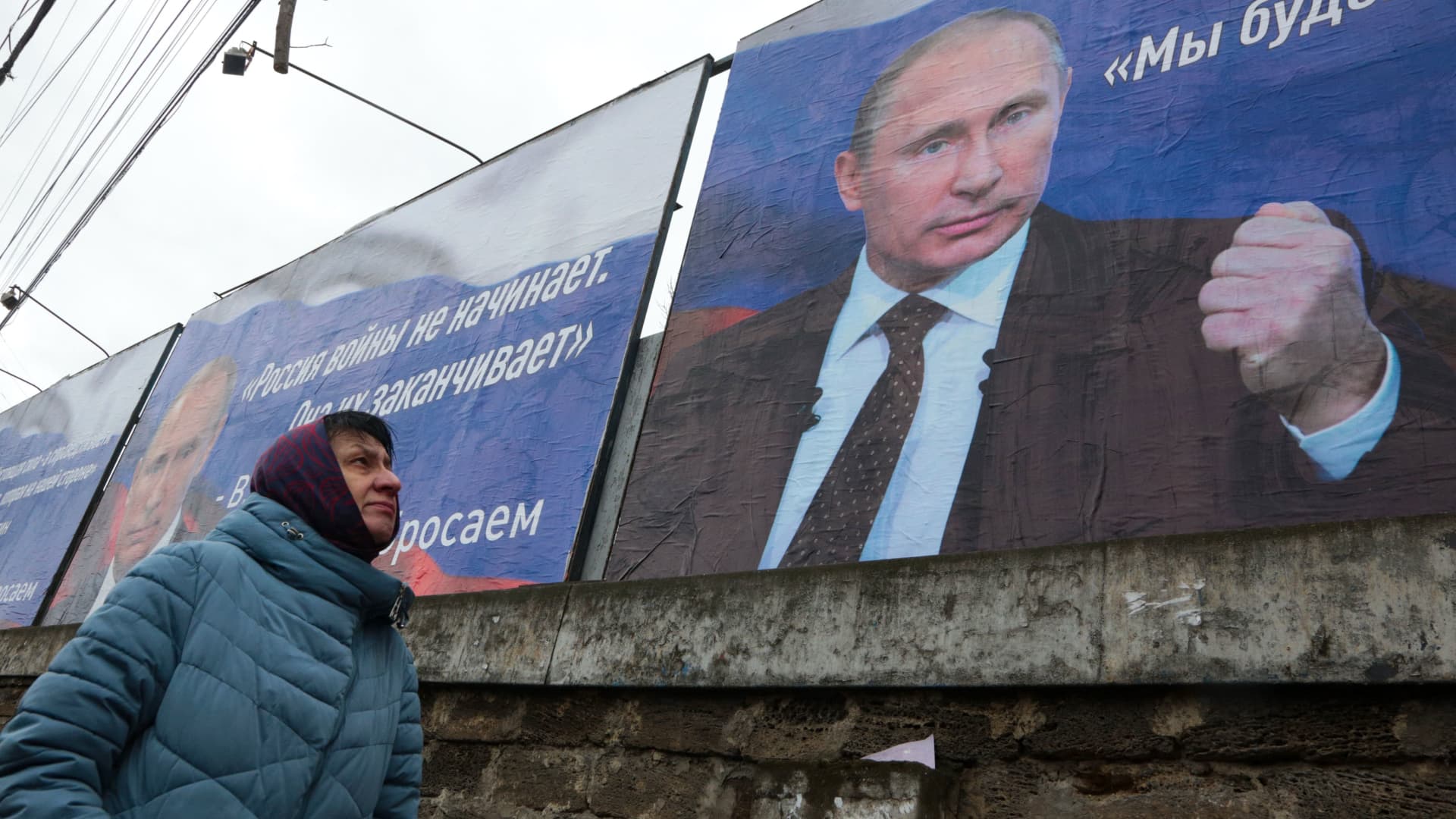
Russia has occupied Crimea since 2014, annexing the territory from Ukraine soon after a popular uprising in Kyiv ousted the pro-Russian President Viktor Yanukovych.
Russia initially denied any involvement in the invasion of Crimea in March 2014 with what locals called "little green men" — essentially Russian soldiers in unmarked green uniforms but who bore Russian arms and who spoke in Russian accents. President Vladimir Putin insisted they were local "self-defense groups" although a month later he confirmed that the Russian military had been deployed to Crimea to, as he put it, stand behind "Crimea's defense forces."
As Russian forces were annexing Crimea, a referendum was held asking residents if they wanted to join Russia with 97% backing it. Although the result was widely disputed and seen as rigged, it meant Russia could use the vote as an excuse, saying it was "defending" Crimean civilians' rights to self-determination.
The U.S., Europe and its allies imposed sanctions on Russia for its invasion and the country was ousted from the then-Group of Eight (now the G-7). But, arguably, little else was done by the international community to take Crimea back for Ukraine, a country in political flux at the time, and Russia adapted to the sanctions.
For its part, Russia has insisted that annexing Crimea was an act of "reunification" and that it is protecting ethnic Russian citizens there. In Crimea, as well as in pro-Russian, separatist regions in eastern Ukraine, Russia has pursued a policy of aggressive "Russification" too, however, handing out Russian passports to locals, suppressing the Ukrainian language and culture and introducing the ruble, to name a few measures.
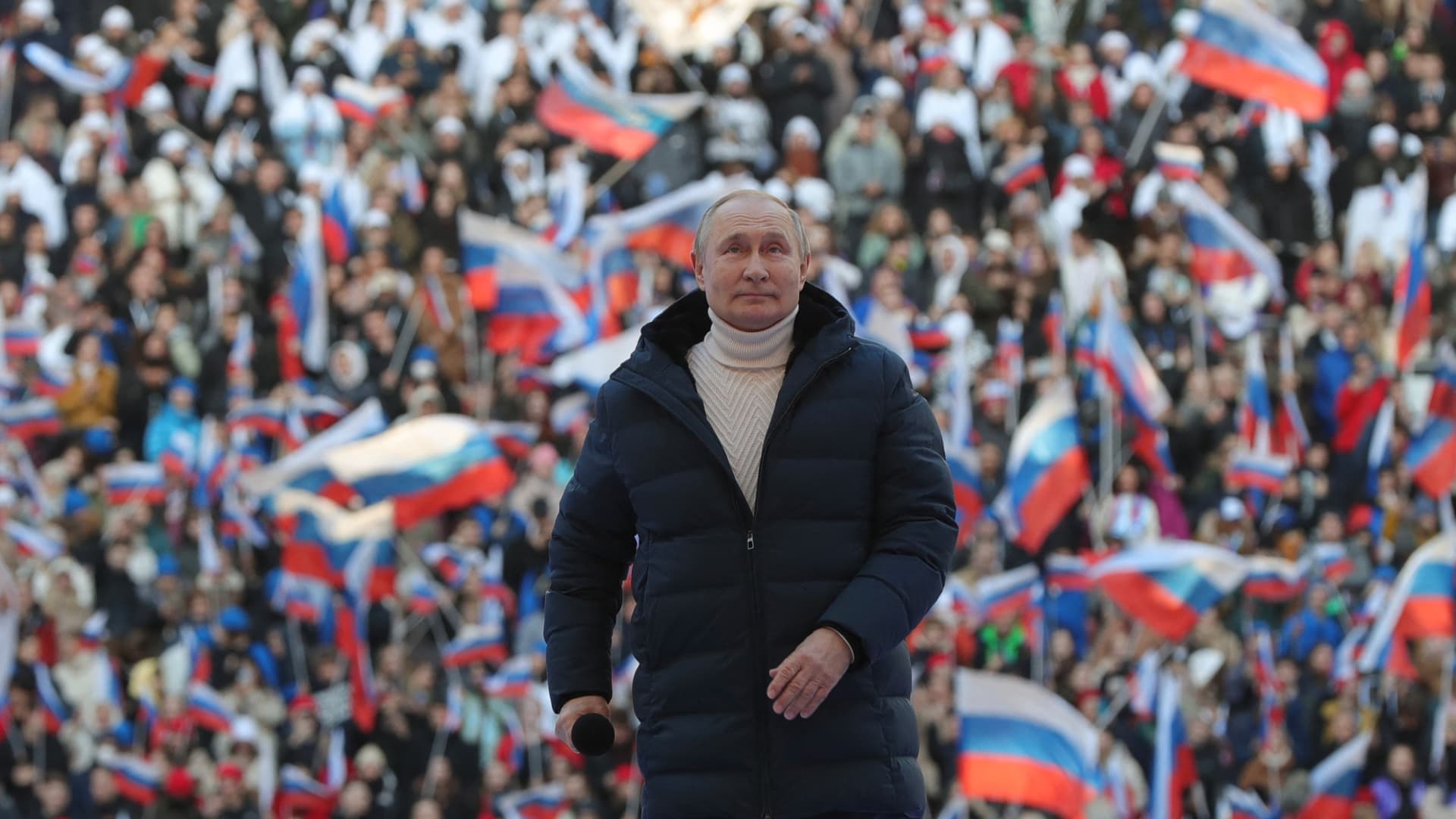
In hindsight, the lack of a unified, strong response against Russia, and its subsequent support of pro-Russian separatists in eastern Ukraine, allowed it to position itself for the recent full-scale invasion.
Meanwhile in Crimea, eight years on from the annexation, Russia has ensconced itself in the peninsula which is a popular holiday destination for Russians.
Moscow has developed its military hold on the region too with sea and air bases there, and has spent billions of rubles on cementing links to mainland Russia with infrastructure projects such as the 12-mile Crimean Bridge (also known as the "Kerch Bridge" as it crosses the Kerch Strait) that cost $3.7 billion to build and opened in 2018.
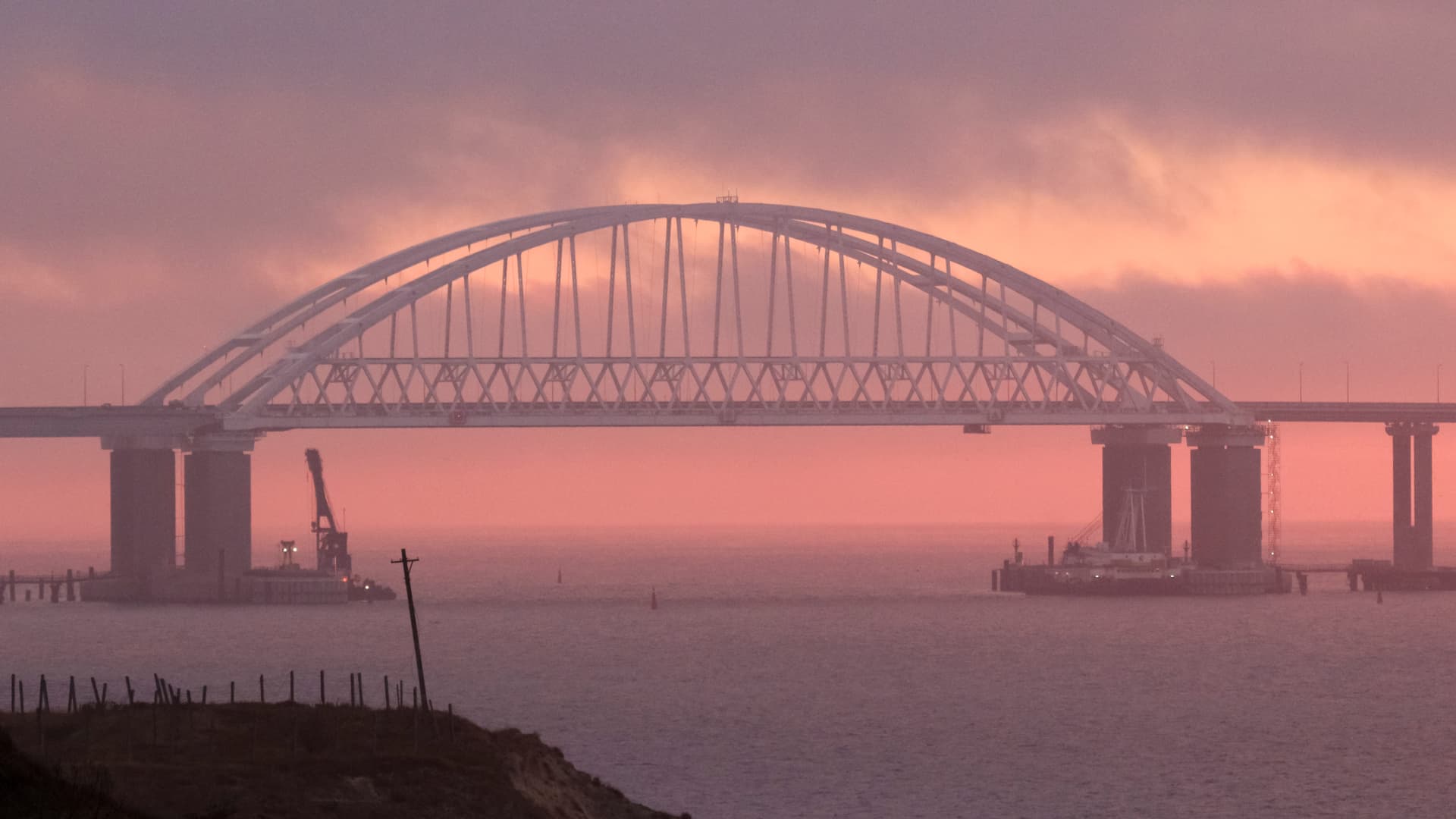
Against this backdrop, the increasing frequency of incidents like those Tuesday are likely to unnerve Russia, according to the U.K.'s Ministry of Defence.
"Dzhankoi and Gvardeyskoye [where the incidents took place Tuesday] are home to two of the most important Russian military airfields in Crimea. Dzhankoi is also a key road and rail junction that plays an important role in supplying Russia's operations in southern Ukraine," the ministry noted.
"The cause of these incidents and the extent of the damage is not yet clear but Russian commanders will highly likely be increasingly concerned with the apparent deterioration in security across Crimea, which functions as rear base area for the occupation."
The 'fog of war'
It's likely that Ukraine will not openly take responsibility, or the credit rather, for such incidents in Crimea just yet, however.
"Ukraine's reason for avoiding direct discussions of responsibility and opaqueness is because it has more to gain from the fog of war and the uncertainty, in this case, than it does from moving the debate on to exactly how it has carried out these attacks and its aims in doing so," Max Hess, a fellow at the Foreign Policy Research Institute, told CNBC Wednesday.
"It's been pretty clear from Ukraine that we've seen attempts to try to destabilize the support for the Russian occupation in Crimea by carrying out these attacks and making Crimea seen as an unsafe holiday destination for Russians. And we have seen Ukrainian officials, a number of military officials, indicate that they consider the Kherch bridge connecting Russia and Crimea ... as a potential target. But they don't want to put the focus on how they would do this, which weapons they're using to do it," he said.
Hess said that while Kyiv's recent, avowed counteroffensive in and around Kherson was designed to weaken Russia's ability to hold territory to the north of the Dnipro River, we still haven't seen much territorial progress for Ukraine.
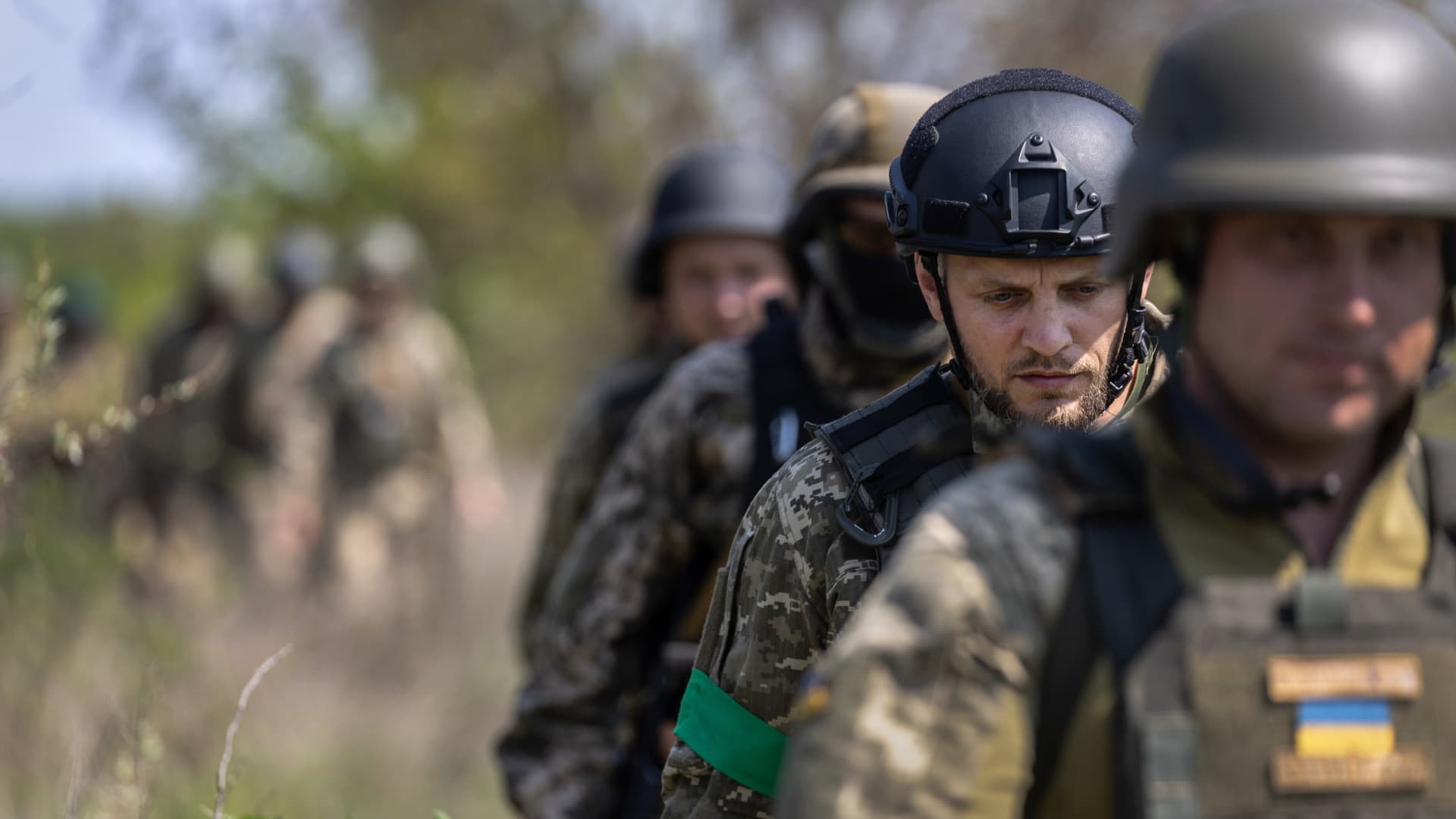
"Despite having been speaking of this potential counter offensive for a month, we haven't seen major Ukrainian advances on any of the Kherson-Mykolaiv-Dnipropetrovsk fronts," he said.
"The extent to which they're still able to do so remains skeptical in some ways," he said. "It seems to be that their strategy is to make it is impossible for Russia to hold, and then have a siege rather than a counter offensive, to try to convince them to give up control of the territory of Kherson and Mykolaiv, north of the Dnipro river."
As for Crimea, Hess believed that while it was it was a long-term goal to liberate Crimea, it was premature to see that as a near-term possibility.
"It's way, way too early to be talking about that. But of course, that is a long-term Ukrainian goal and sovereign Ukrainian territory that they're right to try to ultimately aim to liberate."


